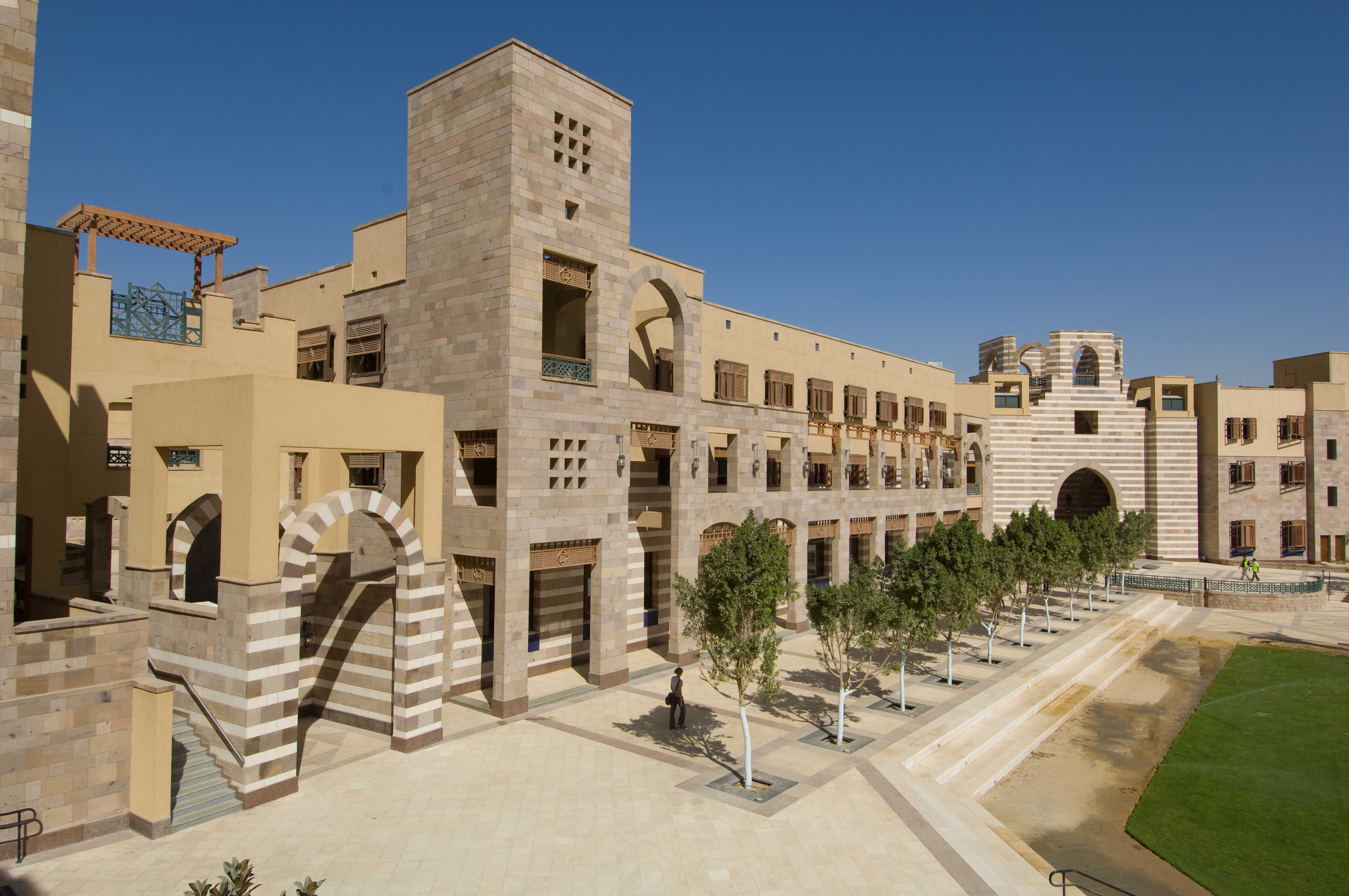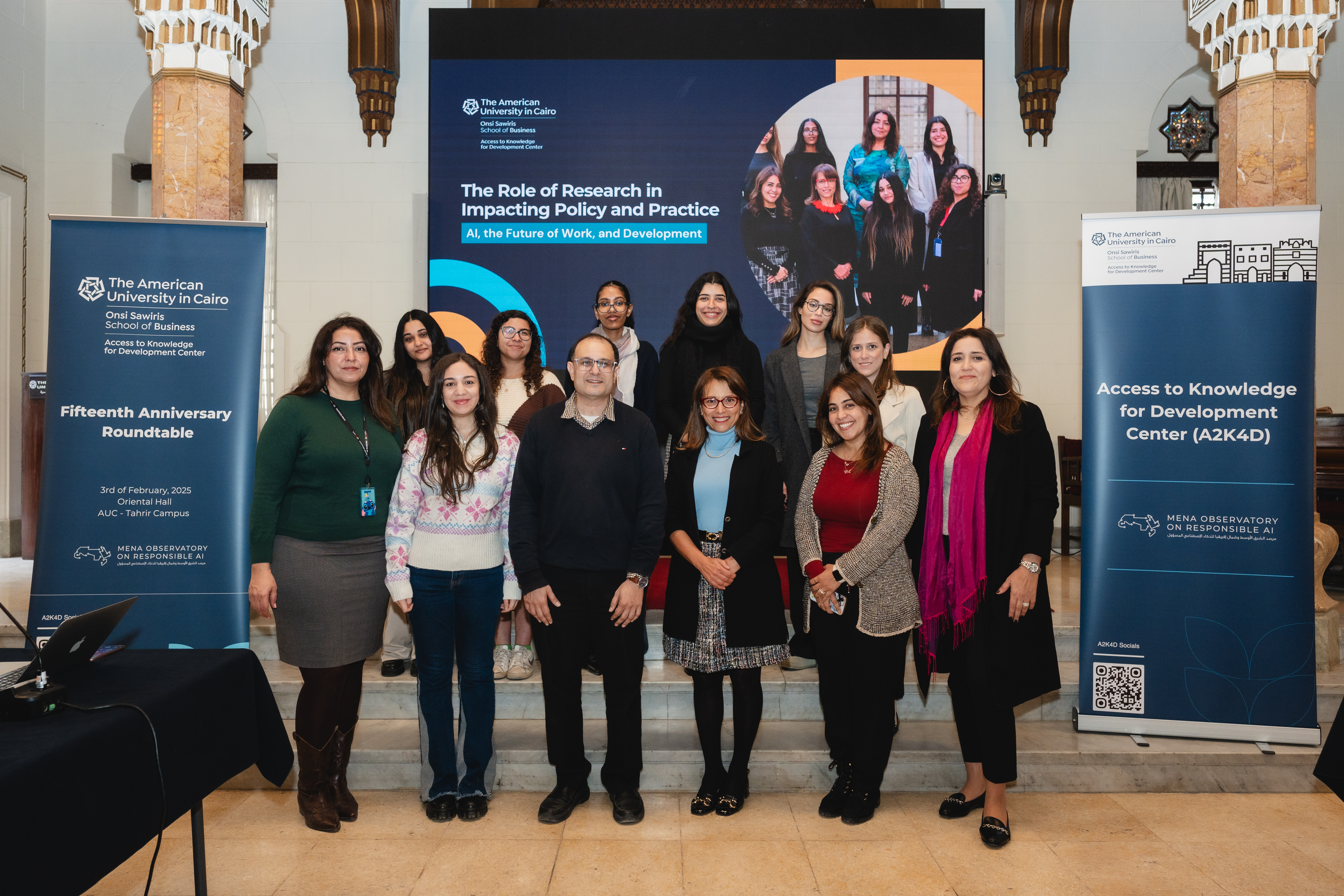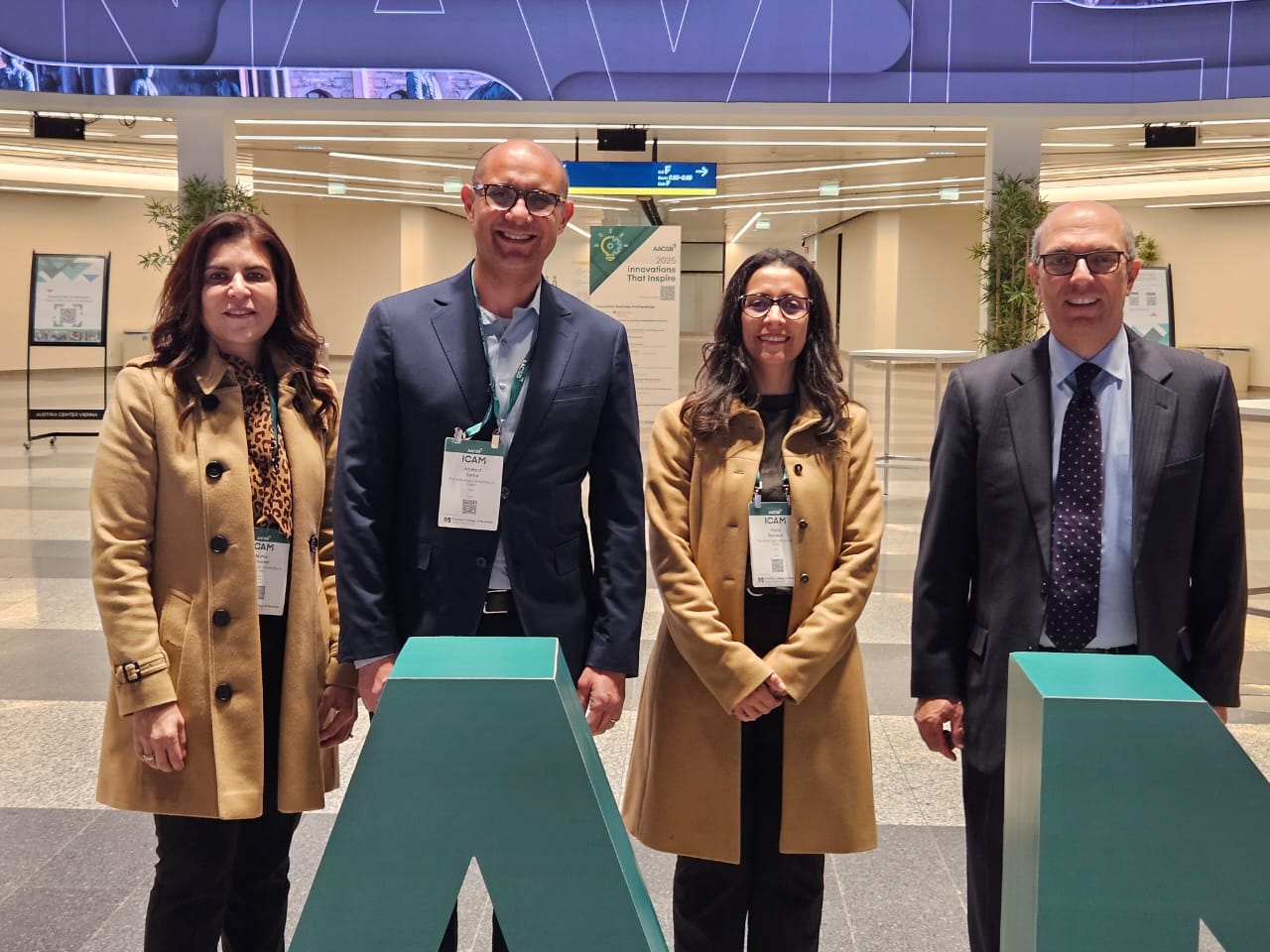Since its inception, the Access to Knowledge for Development Center (A2K4D) has worked to shape inclusive futures through evidence-based, policy-driven research that bridges gaps between policymakers, private businesses and civil society.
A Vision of Inclusion and Empowerment
A2K4D has led transformative research initiatives that respond to pressing real-world challenges in the Middle East and North Africa. The center’s work reflects a commitment to ensuring that technological advancements benefit all members of society, particularly marginalized groups.
Through projects like “Women and Work in Egypt’s Informal Digital Economy: Forward” project, developed in collaboration with Friedrich Ebert Stiftung, A2K4D has championed women’s economic empowerment in the digital age. Similarly, its research on “New Work, Data and Inclusion in the Digital Economy: A MENA Perspective” has shed light on the challenges faced by digital platform workers, fostering a deeper understanding of the evolving nature of work in the region.
Pioneering Feminist Innovation and Responsible AI
A2K4D’s leadership extends to shaping the future of artificial intelligence (AI) with an emphasis on inclusion and ethics. The center established the “MENA Hub for Feminist AI Research (f<a+i>r)”, a groundbreaking initiative that fosters youth-led innovation while ensuring that AI development aligns with feminist and inclusive principles.
In 2023, A2K4D further strengthened its global impact by launching the “MENA Observatory on Responsible AI”, with support from Canada’s International Development Research Center. This initiative explores the ethical implications of AI in the global economy, advocating for responsible frameworks that prioritize inclusivity and equity. Through these efforts, A2K4D is shaping discussions on AI’s role in the MENA region, Africa and the Global South, positioning itself as a global leader in ethical digital transformation.
Building a Global Network for Change
At the heart of A2K4D’s success, is its extensive network of global partnerships. Collaborations with institutions like the Ford Foundation, Open African Innovation Research network, Fairwork, CopyrightX, the Access to Knowledge Global Academy and the Global Network of Internet and Society Research Centers, have played an instrumental role in advancing the center’s mission. These partnerships have enabled A2K4D to advocate for impactful policies and research that address inequalities and promote inclusive development worldwide.
Celebrating 15 Years of Impact
In February 2025, A2K4D celebrated its 15th anniversary in a gathering with friends, collaborators and partners of the center. The event offered an opportunity to reflect on the center’s journey, exchange ideas and highlight the impact of its research in driving change across the region.
“Sharing ideas and insights on the impact of research in bringing change working with different stakeholders: with policymakers, private businesses [and] civil society,” said Founding Director and Professor of Economics Nagla Rizk, encapsulating the spirit of the celebration.
Looking Ahead
As A2K4D reflects on its 15 years of impact, it remains steadfast in its mission to create knowledge-based solutions that empower communities and foster innovation. From advocating for women’s rights in the digital economy to shaping the ethical use of AI, A2K4D continues to pioneer research and initiatives that ensure technology serves all members of society.
Here’s to 15 years of impact - and many more to come.
For 15 years, the Access to Knowledge for Development Center (A2K4D) at the Onsi Sawiris School of Business at The American University in Cairo has been at the forefront of advancing knowledge and technology as tools for addressing inequalities and empowering communities.










